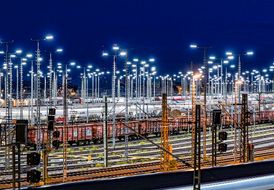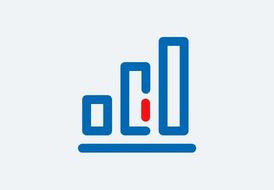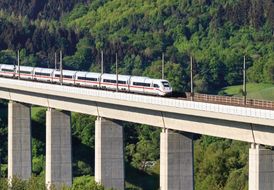Digitalization and innovation
- With the Microsoft Azure platform, DB Schenker is making logistics more intelligent and supply chains more efficient. In future, cloud-based services will be connected to physical logistics solutions. DB Schenker has already launched the first cloud projects in the Azure migration program. The goal is to optimize volume, capacity and supply chain performance in real time with new big-data solutions.
- DB Schenker uses its own IT innovations to achieve improved efficiency and fewer empty spaces in all modes of transport. With the new BinPACKER algorithm, the load planning process is managed in such a way that different sized objects are stacked more intelligently. Algorithms are used to calculate the best loading solution, for example for truck loads or pallets in warehouses. Pilot tests on container and truck loading have shown that BinPACKER helps to increase capacity utilization by up to 10%.
- DB Schenker is involved in the Croatian start-up Gideon Brothers, which specializes in robotics and AI solutions in warehouse logistics, and is participating in the USD 31 million Series A financing round, which will advance the development and marketing of the AI and 3D-view based autonomous robots (AMR). The technology has already been implemented in DB Schenker’s warehouse in Leipzig.
- The heavy-load VoloDrone successfully completed its first public flight at the ITS World Congress 2021. In cooperation with DB Schenker, Volocopter used a freight transport demonstration to showcase how VoloDrone can be integrated into logistics supply chains. The test flight reached a maximum flight height of 22 m.
- DB Schenker, Dachser, duisport and Rhenus have founded the Open Logistics Foundation. The purpose of the non-profit foundation is to build a European open-source community with the aim of advancing digitalization in logistics and supply chain management on the basis of open source, as well as standardizing logistics processes. The Foundation is an appeal to pool thinking and expertise on logistics, technology and processes and to actively participate in the open-source community. It is aimed at all logistics-oriented companies and their IT developers. The Foundation was founded in cooperation with the Fraunhofer Institute for Material Flow and Logistics (IML).
Do you like the site?
0



